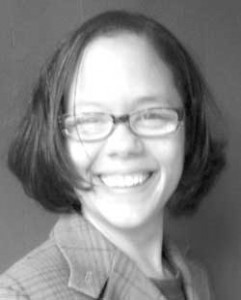Doctoral student wins coveted minority fellowship
6th May 2013 · 0 Comments
A University of New Orleans doctoral student was recently named a 2013 Minority Fellow by the National Board for Certified Counselors. She is among the nation’s first recipients of this honor, which brings a $20,000 award.
She also is a fellow in the UNO College of Business Administration’s new business accelerator program, which helps students develop plans to successfully launch a business. With these two fellowships in hand, Tamia Randolph-Alvarez could soon make waves in the New Orleans counseling community.
“Receiving the award has been a joy for me personally,” said Randolph-Alvarez, who received a phone call Tuesday along with word that her application stood out among all the applications that had been received.
Randolph-Alvarez is a doctoral student in the UNO College of Education and Human Development’s Counselor Education Graduate Program. Her research interests are related to multi-cultural counseling competency, which is an ability to provide services that are relevant to different populations.
Only 24 doctoral students nationwide received 2013 Minority Fellowships from the national board, which received its first MFP grant award in August 2012 from the Substance Abuse and Mental Health Services Administration. SAMHSA offered its first fellowships in 1973 with an aim of increasing the number of “qualified behavioral healthcare providers who truly understand the language of the ethnic and racial minorities they serve,” according to the agency.
This year’s grant allocation to NBCC marks an expansion of early programs to include professional counselors Under the SAMHSA grant, the NBCC program will provide fellowships to diverse doctoral students in counseling with a goal of increasing the number of professional counselors who have received advanced training and are skilled in providing effective services to underserved populations, according to an NBCC statement.
According to Counseling Today, the SAMHSA grant provides the NBCC as much as $1.6 million over the next two years to expand the nation’s behavioral health workforce in an effort “to reduce health disparities and improve health care outcomes for traditionally underserved populations.” Of that money, $600,000 per year goes straight to supporting minority students in Council for Accreditation of Counseling and Related Educational Programs (CACREP) doctoral programs, including UNO’s doctoral program.
The NBCC Foundation will administer the counseling fellowships and provide training and collaboration opportunities open to all National Certified Counselors, including Randolph-Alvarez.
Randolph-Alvarez, a New Orleans native who received her undergraduate degree from Xavier University, has been a national certified counselor since October 2004, shortly after she completed her master’s degree in counseling at UNO. She started practicing as a counselor that year and has worked with mental health and substance abuse patients from ethnic communities in clinics, in schools and in home settings. Since then, she has had two small children and resumed her studies, beginning her doctoral work in January 2009.
“I feel really special about it,” Randolph-Alvarez said of her award. “In the process of putting together all the materials, I thought to myself: ‘Wow what it would be like to be chosen for my experience in this area. To be recognized and to have that happen, to be chosen, was just really validating.”
Randolph-Alvarez is also a fellow with UNO’s Urban Entrepreneurship Program, launched by the College of Business Administration last fall in collaboration with the Kaufmann Foundation. UEP fellows must show proof of concept, develop a marketing plan and outline finances, Randolph-Alvarez said. She works weekly with senior business consultant John Laurie, who provides coaching and helps her with development of her business model.
Her business, designed to provide culturally competent substance abuse and mental health services to ethnic clients in the New Orleans community, is still in the conceptual stage, Randolph-Alvarez said. The goal of the accelerator program is to help students build entrepreneurial skills in their area of experience. At the end of the program, the student should be ready to launch or rescale his or her business.
This article originally published in the May 6, 2013 print edition of The Louisiana Weekly newspaper.




